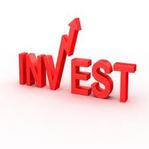
A. Tax efficiency is not tax minimization, instead, it means maximize your after-tax return.
The following five tax strategies are every investor should pay attention to:
1. Reduce Portfolio Turnover
There are a few things related your investment portfolio's components that can help you achieve tax efficiency.
At the most basic level, picking investment products for the long run avoids turnover. Whenever you sell an asset in a taxable account, it generates a gain or loss with taxable implications. So holding on to assets with gains defers those taxes is like getting an interest-free loan from the government.
Second, note that some investment products are more efficient than others. Mutual funds or ETFs that turn over their holdings generate taxable gains passed on to you as a fund owner. According to Morningstar, the median turnover of active equity mutual funds is 49%. This creates both short-term and long-term taxable gains - and, by the way, tends to reduce returns even before these taxable consequences are factored in.
Third, note that even index funds may also create turnover, particularly those with narrower focus. For example, a small-cap value index fund must sell when a company holding becomes larger or no longer meets the definition of value. Even an S&P 500 index fund must buy or sell whenever S&P makes a change.
Which funds have the lowest turnover? The broadest stock index funds, such as the total U.S. or total international stock funds, have the lowest turnover and are the most tax-efficient. Even those funds, however, sometimes must sell to raise cash to buy large IPOs, such as Facebook or Twitter.
Stay tuned for Part II.

 RSS Feed
RSS Feed
